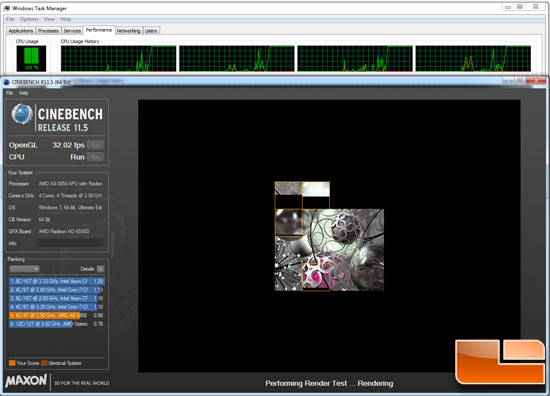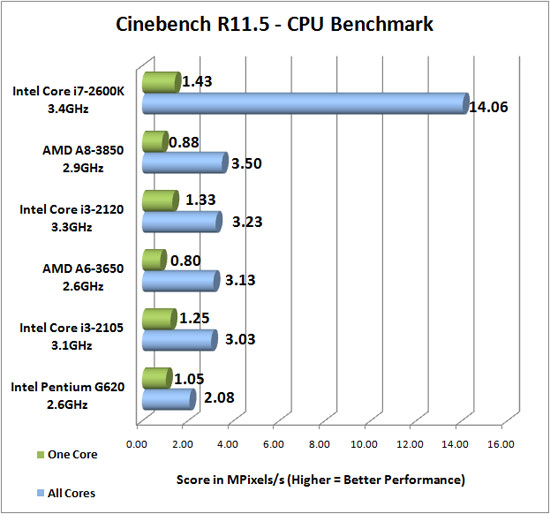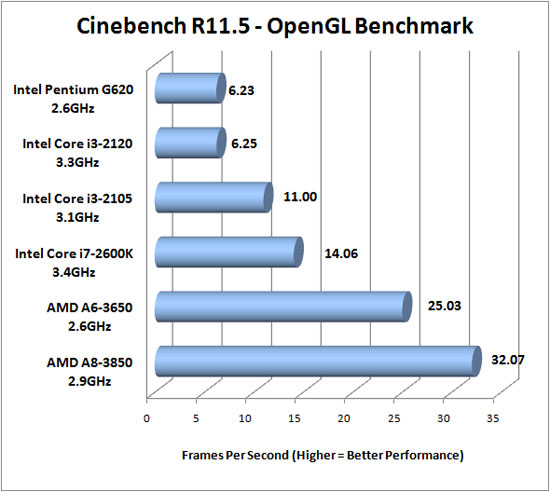Intel Pentium G620 Sandy Bridge 2.6GHz CPU Review
Cinebench R11.5
MAXON; CINEBENCH R11.5:
MAXON recently released CINEBENCH Release 11.5, an advanced hardware
testing suite that assesses a computer’s performance capabilities.
CINEBENCH is based on the same powerful technology as MAXON’s
award-winning animation software CINEMA 4D, which is used extensively by
studios and production houses worldwide for 3D content creation. The
new version of CINEBENCH includes the ability to more accurately test
the industrys latest hardware, including systems with up to 64
processor threads, and the testing environment better reflects the
expectations of todays production demands. A more streamlined interface
makes testing systems and reading results incredibly straightforward.
Again, higher Frames/Second and point score equal better performance.

Cinebench R11.5 was able to put a 100% load across all the cores on
all of the processors, which makes this a great benchmark to look at
multi-core platforms.

Benchmark Results: When it comes to multi-core performance the Intel Pentium G620 was the only dual-core processor with no Hyper-Threading in the group and the performance wasn’t enough to keep up with the other processors. If you look at single threaded performance though the Intel Pentium Processor G620 does very well and wasn’t too far behing the Intel Core i3-2105 processor that is clocked 500MHz faster.

Benchmark Results: Cinebench can also test OpenGL performance and we were a bit shocked to see that the Intel Pentium Processor G620 performed as close as it did to the Intel Core i3-2120 processor. Both processors share Intel HD 2000 graphics running at 1100MHz, so we can see that this benchmark isn’t CPU limited since both scored the same and we know the CPU difference is huge.

Comments are closed.